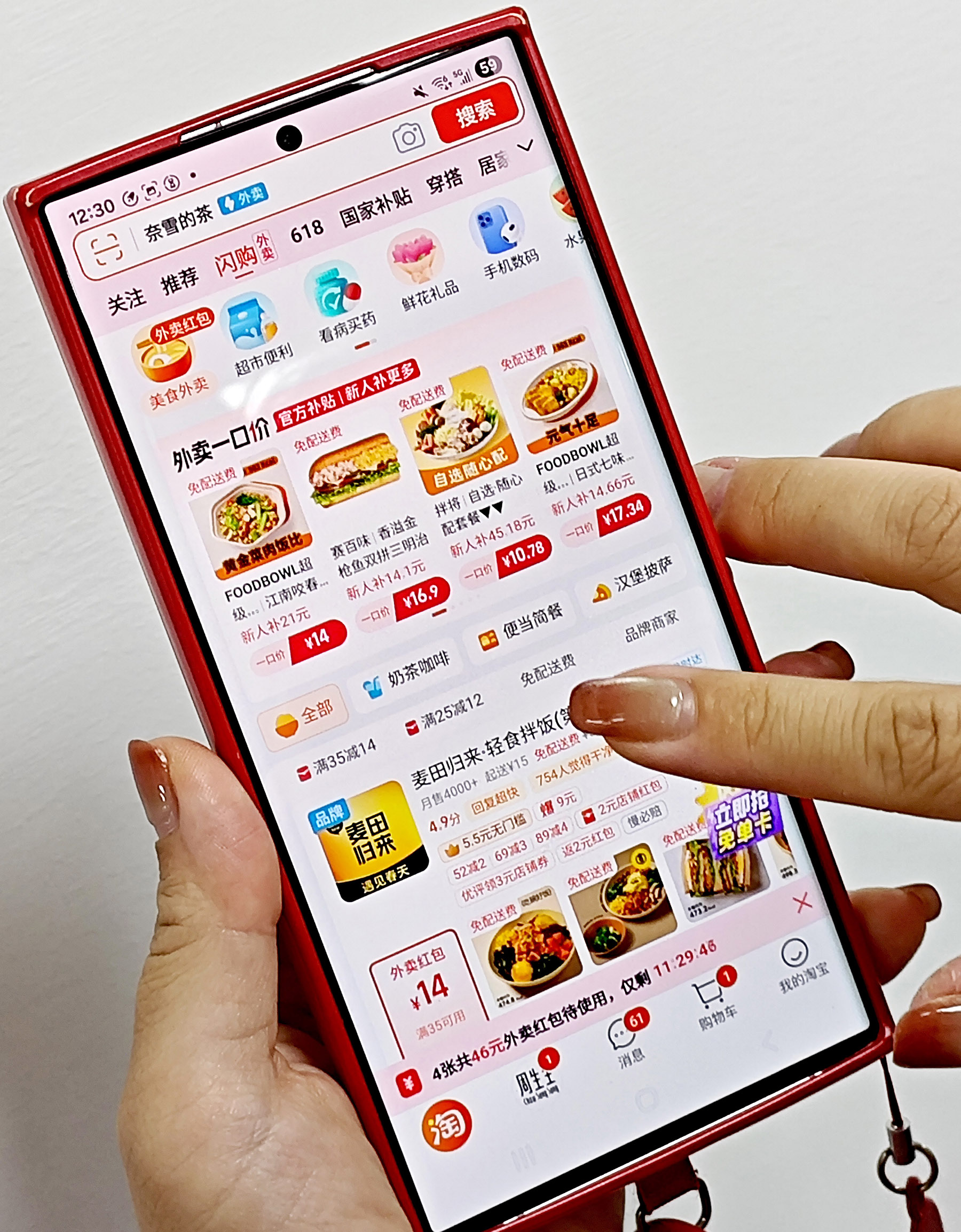E-commerce platforms bank on lucrative food delivery services

China's instant retail sector is expected to see speedy growth as leading e-commerce platforms are banking on the lucrative on-demand food delivery services to drive new sources of revenue and reconstruct the traditional retail landscape, experts said.
They called on enterprises to ramp up technological innovation, optimize logistics networks and improve delivery efficiency, while leveraging personalized recommendation methods and high-quality services to elevate the user experience.
Meanwhile, authorities and industry associations should introduce relevant regulations and standards to promote the healthy development of the instant retail market, they added.
Alibaba Group has recently upgraded its one-hour delivery platform and launched Taobao Instant Commerce, as part of a broader push to march into the fast-growing instant retail market.
READ MORE: E-commerce helps take bite out of duties
The service, which operates in more than 50 major cities across the nation, promises deliveries for various goods beyond food, such as electronics, clothing and flowers within an hour. The orders are fulfilled by Ele.me, Alibaba's food delivery unit.
To attract customers, Taobao is increasing subsidies and offering discounts on items like milk tea. The platform will make use of its advantages in online flagship stores, and strengthen cooperation with local warehouses and offline retail sites to cater to consumers' rising demand for speedy and affordable instant delivery services.
The sharp increase in the number of orders from Taobao Instant Commerce has led to a significant surge in Ele.me's order volume in many cities. Taobao said the number of daily orders has surpassed 40 million, with the daily order volume in 39 cities breaking historical records.
Alibaba's move came after e-commerce platform JD's entry into the highly competitive food delivery sector. JD has provided comprehensive support like low or zero commission fees to catering merchants who register on its platform, and stepped up the recruitment of full-time delivery riders.
Instant retail refers to a model where shoppers place orders on online trading platforms, followed by retailers from brick-and-mortar stores executing door-to-door deliveries themselves or through third-party delivery platforms. An on-demand delivery order usually requires 30 to 60 minutes to be completed.
Food delivery platform Meituan has rolled out its instant retail service "flash purchases", vowing to provide 24-hour shopping services with deliveries finished within approximately 30 minutes. Customers can select from a wide range of products, including fresh produce, snacks, electronics, beauty items and pet care supplies.
Industry observers pointed out that the traditional e-commerce industry is slowing down, while the growth rate of the instant retail market is expected to stay above 20 percent.
According to a report from the Chinese Academy of International Trade and Economic Cooperation, the market scale of China's instant retail sector reached 650 billion yuan ($90.5 billion) in 2023, up 28.89 percent year-on-year. The figure is expected to surpass 2 trillion yuan in 2030.
"Instant retail is regarded as an important development direction for the future retail sector as enterprises can expand their scope of services, enhance user stickiness, and leverage their existing logistics and supply chain advantages to explore new growth points through instant retail," said Hong Yong, an associate research fellow at the Chinese Academy of International Trade and Economic Cooperation.
Hong said at present, the competition in the on-demand retail market is becoming increasingly fierce, with major players including e-commerce platforms, local life service enterprises and traditional retailers upping the ante in the sector, adding that the key to success is centered on the optimization of the user experience, expansion of service scope and supply chain efficiency.
Meanwhile, Chinese authorities recently summoned major food delivery platforms including JD and Meituan, to address prominent issues related to competition in the food delivery sector.
ALSO READ: China urges food delivery platforms to compete in fair, orderly manner
They called on platforms to comply with laws and regulations, fulfill social responsibilities, strengthen internal management, engage in fair and orderly competition, and safeguard the rights and interests of consumers, merchants, and delivery riders. The move is to promote the regulated, healthy and orderly development of the platform economy.
"Platform enterprises should pool more resources into technologies, deepen supply chain innovation and optimize cost structure through highly efficient inventory management and intelligent warehousing and distribution systems," said Zhu Keli, founding director of the China Institute of New Economy.
It is of vital significance to establish a stricter merchant access and supervision mechanism to improve the quality of goods, Zhu said, while calling for efforts to strengthen cooperation among different platforms to better integrate resources and further stimulate consumption potential.
Contact the writer at fanfeifei@chinadaily.com.cn


